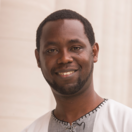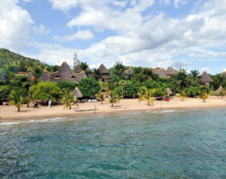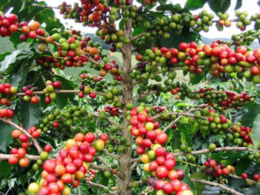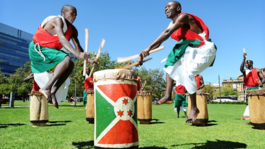December 2018 Humphrey Secretariat Post
 Hello everyone,
Hello everyone,
My name is Gerard Ntiranyuhura and I am from Burundi.
Over the last nine years I have been working as the Field Coordinator for a non-profit Organization called Village Health Works where I have been helping coordinating initiatives to improve the quality of education in rural Burundi among other duties. I have also been managing the organization’s U.S. State Department-supported English Access Microscholarship Program, which provides underprivileged students with access to English language learning opportunities.
In addition to my work at Village Health Works, I have been leading young students to implement mini-projects in the community such as “Feed our Mind, Feed our Future” to help low-income families of his home village to use entrepreneurial tools to combat school dropouts and solve other challenges that prevent their children from going and staying at school and performing well, etc.
I am also a dedicated mentor to secondary school students from rural areas in Burundi where I provide college guidance and many other mentoring services to students. Prior to joining Hubert H. Humphrey Program, I was also the head coach of the Burundi National Feminine Handball team, and previously served as head teacher at Great Lakes Technical School in Bujumbura, Burundi.

I truly believe in the transformative power of education and I am convinced that my country Burundi has to invest much in delivering high quality education and train the next generation of professionals who will be able to work hard and develop our country. I also believe that it is though providing quality education that my country will have professionals who have skills to be leaders and entrepreneurs and who will be able to impact the future of Burundi, take on critical roles, solving problems and creating jobs.
Despite the social, economic, security and political challenges that Burundi has been experiencing since 1960s, it is a very beautiful country that packs a lot of stunning nature into a small space.

In Burundi Cattle are a symbol of health, happiness, and prosperity. A typical Kirundi greeting, “Amashyo,” translates as “May you have herds of cattle.”
The lack of coast in Burundi doesn’t mean a lack of beaches and the country has some great inland beaches where the heat can be escaped by a cool and safe dip in one of the country’s lakes.

Burundi is also known by its coffee which has an excellent reputation, especially in Europe. Most coffee is grown in the mountains of the north, bordering Rwanda and benefit from ideal growing conditions and large plantings of the heirloom Bourbon variety of Arabica.
In Burundi, the ritual dance of the royal drum is a spectacle combining powerful, synchronized drumming with dancing, heroic poetry and traditional songs. The entire population of Burundi recognizes it as a fundamental part of its heritage and identity. It was inscribed in 2014 on the representative list of the intangible heritage of humanity by the United Nations Educational, Scientific and Cultural Organization (UNESCO).
